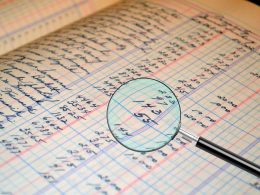Subsidiary ledgers are some of the most important accounts in any business. They contain detailed records of business activities. We explain what exactly they are.
What are subsidiary ledgers? Definition of the term
Auxiliary ledgers are used to analyze financial data. They contain detailed general ledger entries – information on expenses, income, assets and liabilities. Auxiliary ledgers can be maintained for any type of business. The benefits of keeping an auxiliary ledger are mainly better organization of finances, easier analysis of data and the ability to make business decisions more quickly. However, keeping an auxiliary ledger requires adequate knowledge and experience. That’s why you should enlist the help of a specialist who can help you choose the right auxiliary ledger software and customize it for your business.
What are auxiliary ledgers used for?
Auxiliary ledgers are used for analysis and financial control of a company, as well as for planning and implementing business strategies. Auxiliary ledgers cover all the financial transactions of a company, and their analysis allows conclusions to be drawn about the operation of the company and its financial performance.
Analytical accounts are subsidiary ledgers that are used to conduct a detailed analysis of a company’s expenses and revenues. They allow you to keep track of expenditures on specific activities and projects and evaluate their effectiveness. Analytical accounts also provide a better understanding of accounting and its principles. They make it easier to assess whether accounting data is correct and whether its analysis is reliable.
What do auxiliary ledgers contain?
Among the auxiliary books, which are used for bookkeeping, we distinguish inventory books and ledgers. Inventory ledgers record all information about a company’s fixed assets, as well as commercial goods. Accounting ledgers, on the other hand, contain all the data on business operations that an enterprise carries out. Among ledgers, we distinguish between general ledgers and subsidiary ledgers. General ledgers are the books in which all the economic operations of an enterprise are recorded. Auxiliary ledgers, on the other hand, are books in which economic operations of a special nature are recorded. Auxiliary ledgers include, among others, inventory books, bank books, income and expense books and accounting books.




